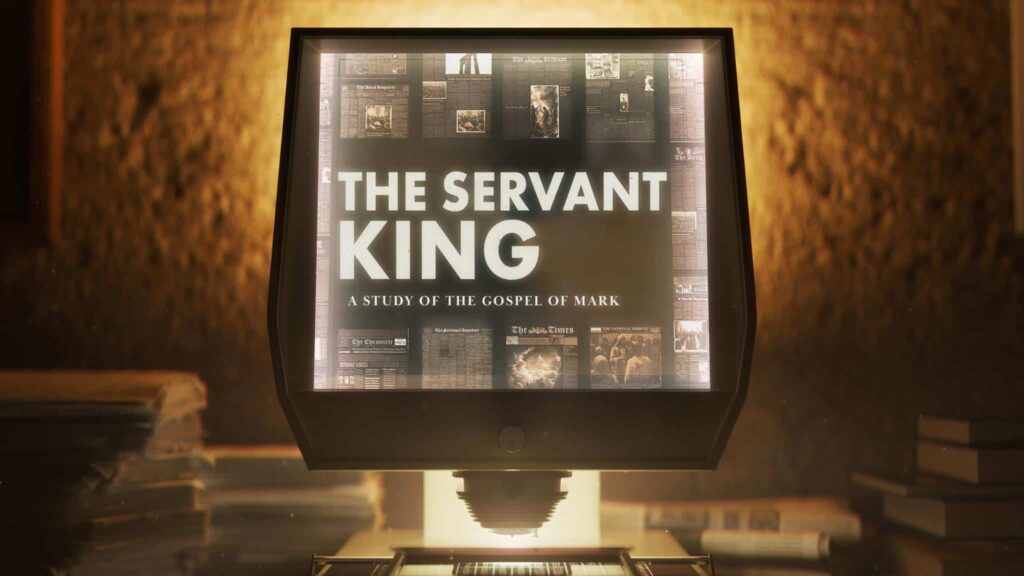The King’s Authority Over Sin

In Mark 2:1–12, Jesus proves His divine authority by forgiving sins before healing a paralytic. Discover why the greatest miracle reveals the King’s authority over sin.
The King’s Authority | Mark 1:21–34

Mark 1:21–34 shows the King’s authority through Jesus’ teaching, power over demons, and compassionate healing. Discover how His authority calls for submission, trust, and faithful response.
From the Water to the Wilderness (Mark 1:9–13)

In Mark 1:9–13, Jesus moves from baptism to wilderness, identifying with sinners and overcoming temptation. This message shows how He leads us through testing with purpose and victory as the true Servant King.
Prepare the Way

In Mark 1:1–8, we’re called to prepare the way for the Servant King. Through the voice of John the Baptist, Scripture reminds us that receiving Jesus begins with repentance, humility, and a clear recognition of who He truly is. Discover how to clear the path for Christ’s rule in your heart and life today.
What the Enemy Means for Evil God Means for Good

Betrayal and suffering never get the last word because God weaves His purpose through every detail. What the enemy means for evil, God turns into good.
Forgiveness and Providence

Forgiveness and providence often intersect at the hardest moments of life. When wrongs run deep and wounds still ache, Scripture reminds believers that God is working behind the scenes in ways they cannot yet see.
Tested and Transformed

God’s testing is never random; it is redemptive. In Genesis 43–44, God’s testing moves Joseph’s brothers from guilt to grace. Through famine, fear, and forgiveness, we see hearts truly tested and transformed.
Pit to Palace: Exalted for Purpose

God exalts His people not for status but for service. Genesis 41 reveals how Joseph’s rise from prison to palace prepared him to lead with humility, purpose, and power.
Integrity in the Presence of God

Joseph’s story in Genesis 39 reveals that true integrity flows from God’s presence, not self-discipline. Even in prison, he reflects God’s holiness and favor.
The Many Shades of Pride

Genesis 37 reveals the many shades of pride in Joseph’s story – jealousy, favoritism, and betrayal. Yet through it all, God’s redemptive plan remains unshaken.
Turning the Page

Genesis 35-36 is like turning a new page in the story of God’s people. These chapters close the era of the patriarchs and prepare for the next generation, especially the life of Joseph. The narrative reviews Jacob’s failures, God’s mercy, and the covenant that continues to advance. Readers see that human sin does not stop […]
Seeking Justice and Trusting in Christ

Genesis 34 records one of Scripture’s darkest moments, yet it also challenges believers to seek justice and trust in Christ. Dinah’s violation, Jacob’s silence, and his sons’ vengeful slaughter reveal what happens when people ignore God. No prayers are offered, no divine words are recorded, and human failure takes center stage. Yet even here, God’s […]
